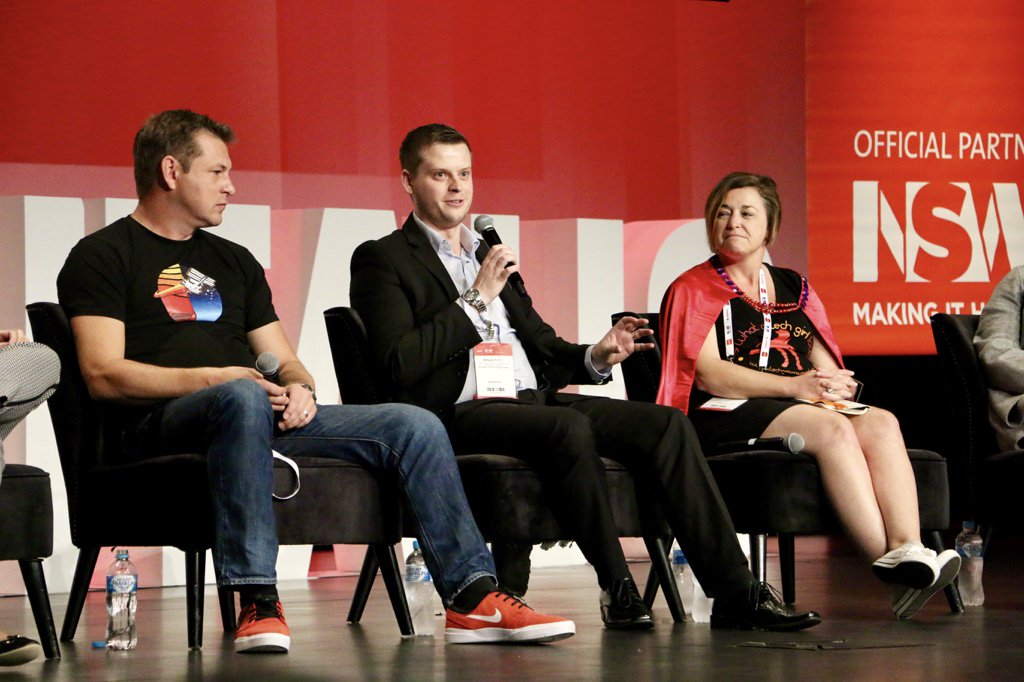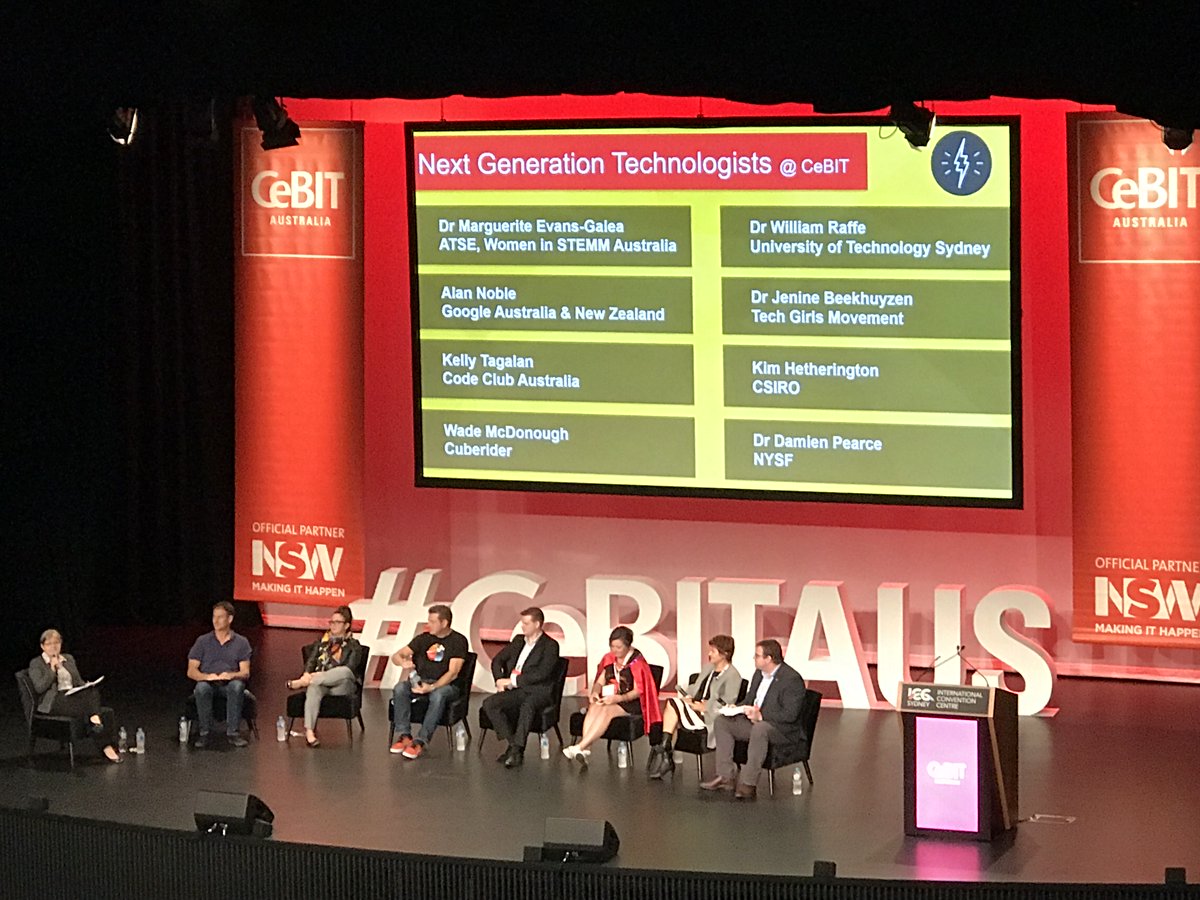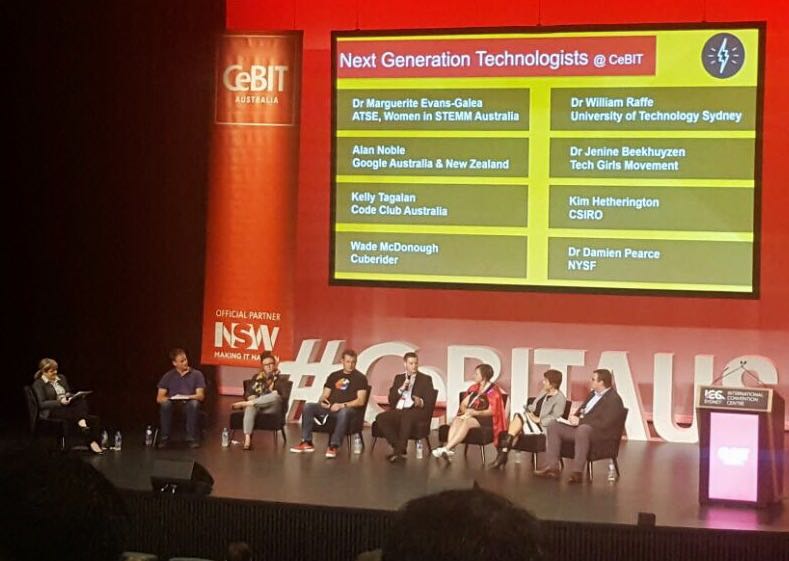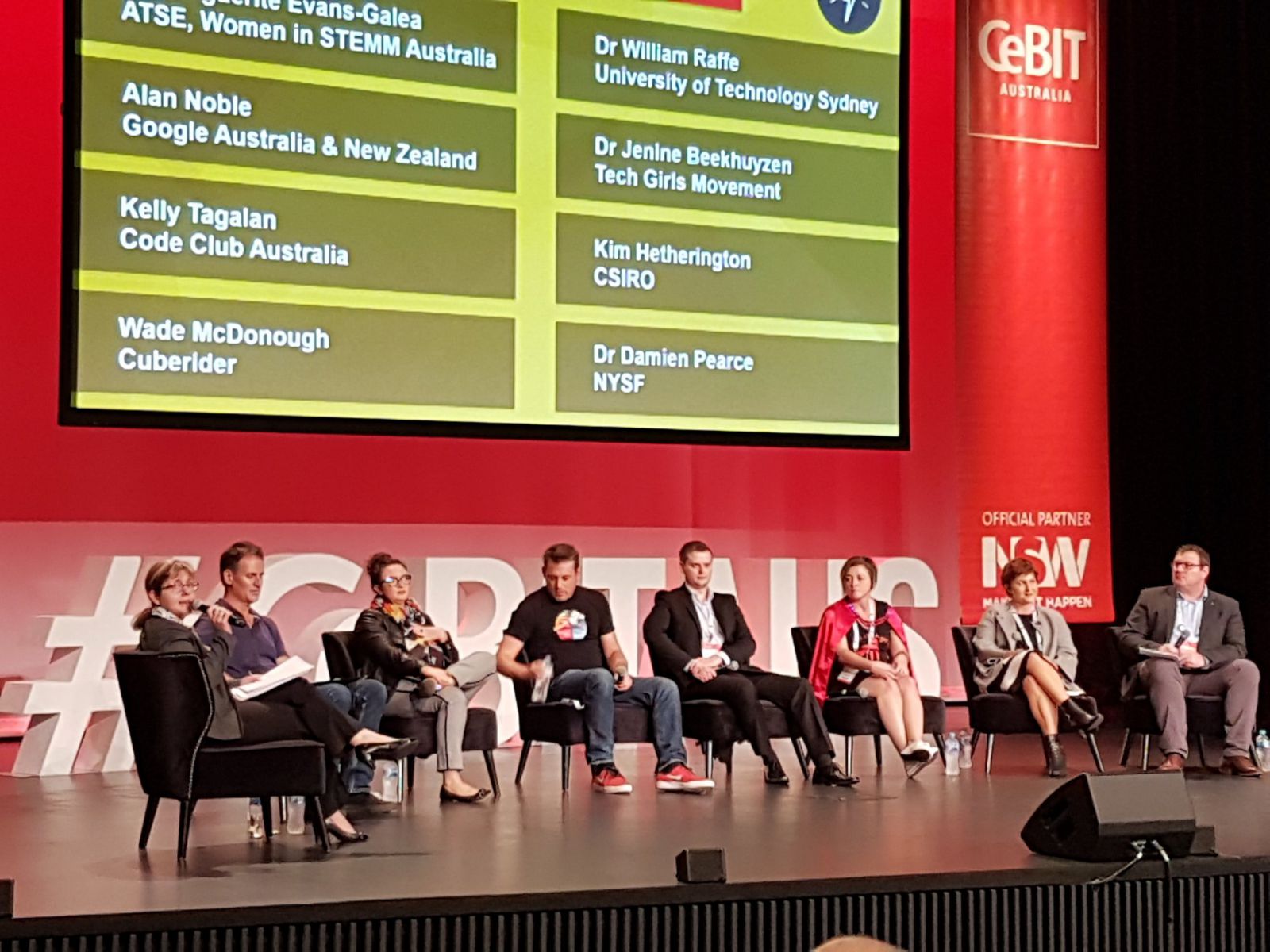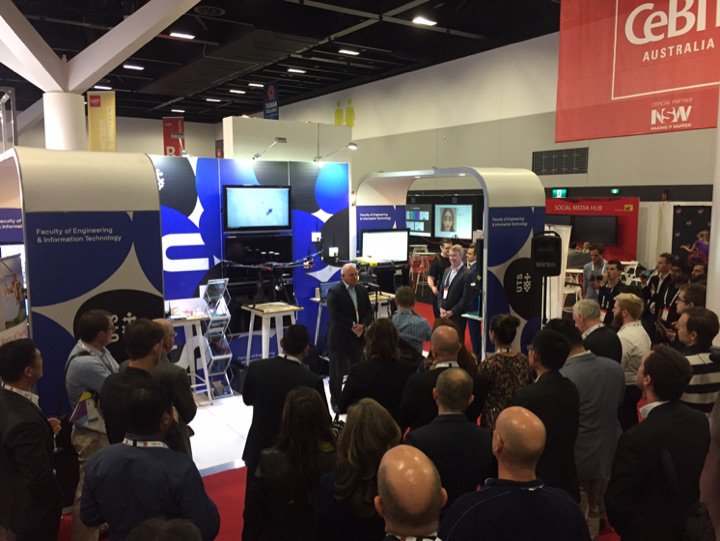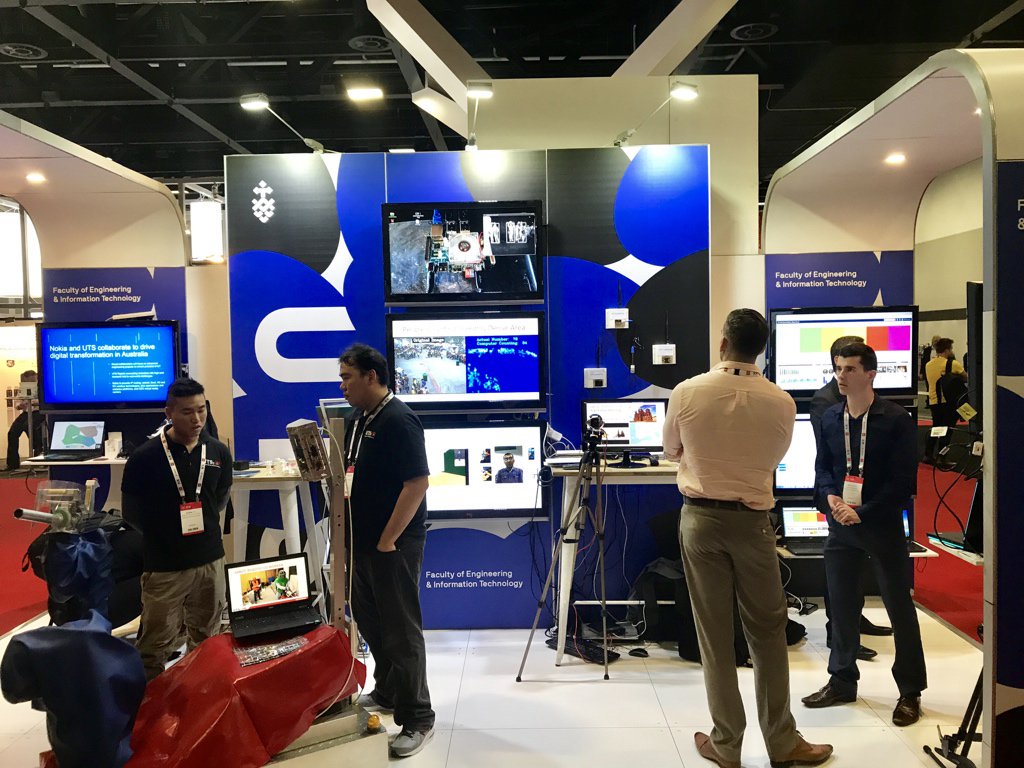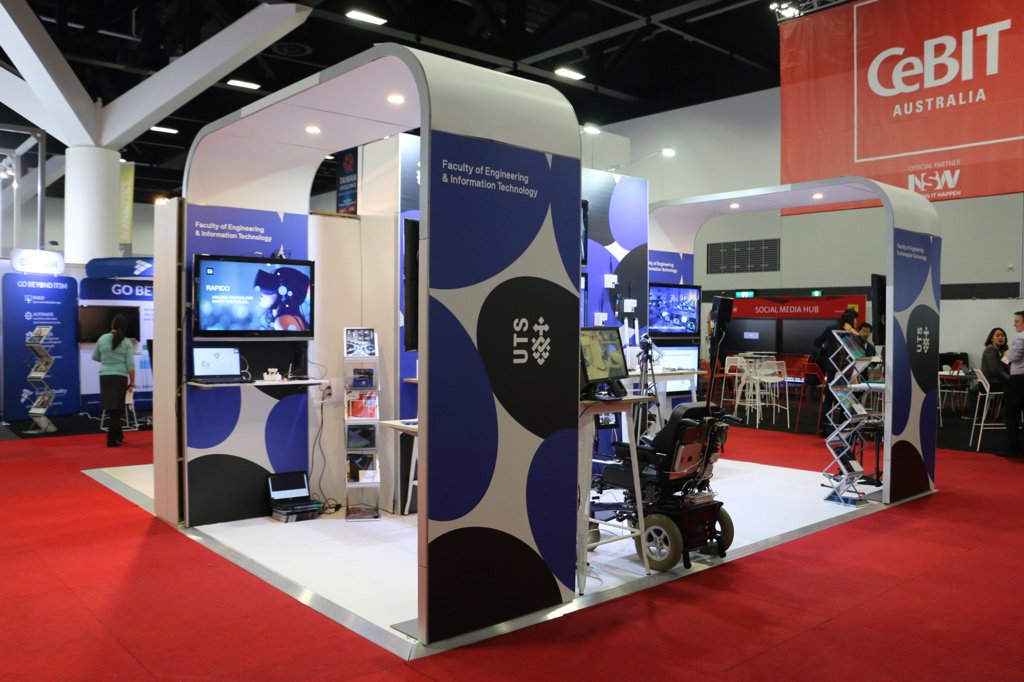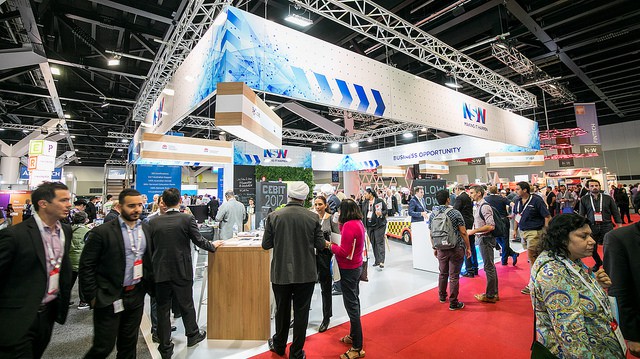CeBIT 2017 Strategic Panel
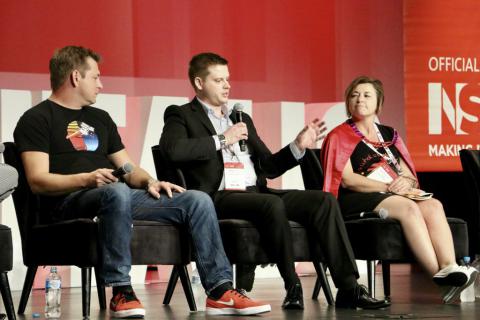
Dr. William Raffe participated in a Strategic Panel at the CeBIT 2017 conference on Wednesday 24th May. CeBIT is Australia's premier Bussiness and IT free public expo that brings together businesses of all sizes, innovators, and educators to discuss the future of the Australian technology sector. CeBIT 2017 saw over 15,000 attendees pass through the exhibition halls and seminar rooms of the Sydney International Convention Center over three days.
This specific panel was titled "The next generation of technologists panel: Inspiration, aspiration, engagement, and STEM" along with Alan Noble (Head of Engineering, Google Australia and New Zealand), Kelly Tagalan (General Manager, Code Club Australia), Wade McDonough (Managing Director, Cuberider), Dr. Damien Pearce (CEO, National Youth Science Forum), Dr Jenine Beekhuyzen (Founder, Tech Girls Movement), Kim Hetherington (STEM Partnerships Program Manager, CSIRO), and Dr Marguerite Evans-Galea (Executive Director, Australian Academy of Technology and Engineering)
The panel exposed some great insight into how skills shortage and lack of diversity in the IT industry is affecting Australian businesses, as well as how to appeal to the next generation of primary, secondary, and higher education students and graduates to enter the STEM sectors. Some of the topics that we discussed involved:
- Strategies for business leaders to form diverse teams with a range of IT related competencies.
- What are future technology growth areas and how to upskill the existing technology workforce.
- How can employees exiting the traditional manufacturing industries re-train and engage in the growing STEM sectors.
- How to integrate STEM competencies in all areas study (not just STEM subjects) and across all levels of education, from primary school to university degrees.
- Fostering workplace cultures and industry role models that appeal to a generation of students that aim to make a change in the world rather than just working for a pay-check.
- Encouraging students from under-represented demographics to study in and enter the STEM sectors.
- The role of automation and machine learning on future job opportunities and what types of skills students should be trained in to be adaptable to future career trends.
The CeBIT conference as a whole was expansive and a good opportunity to make contacts, with representatives from a wide range of businesses. Most of the Sydney universities were there but UTS stood out from the crowd with a prominent booth that displayed many of the FEIT strengths and was well attended by FEIT and Rapido staff. From my own personal interests, there was quite the showing of virtual reality, holographic displays, and 3D scanning from both the perspective of novel technology as well as applying existing consumer products to original business contexts. There were also a few companies showing off games for education as well as a game for identifying hearing issues in children without requiring significant medical equipment.
